Can DVDs Be Recycled? Eco-Friendly Disposal
In today’s digital age, many of us find old DVDs and CDs at home. They feel out of place as streaming takes over. This raises the eco-friendly disposal question: can we recycle DVDs? DVDs can’t go in curbside recycling, unlike paper or glass. They’re made of No. 7 polycarbonate plastic and aluminium, making recycling hard. Usually, they end up in landfills or are burnt, harming the environment.
However, there’s a growing push for recycling options for DVDs. Some places now see DVDs as e-waste. This means you can take them to special recycling events or centres. For those of us who care about the planet, this is a chance. We can look for ways to reduce waste and keep the earth safe.
Understanding the Composition of DVDs
DVDs are mainly made of polycarbonate plastic. This is a type of #7 plastic. It’s hard to recycle because breaking it down is complex. Not many facilities can handle it. We’ll look into what DVDs are made of and why it matters for recycling.
Materials Used in DVDs
Most of a DVD is polycarbonate plastic. It also has bits of metals like aluminium and gold. These metals can be recycled, but there’s not much of them. The cases for DVDs are mostly made of #6 plastic, or polystyrene. This is easier to recycle than the discs themselves. Knowing about these materials helps us recycle better.
Why the Material Matters for Recycling
The stuff DVDs are made from is important, not just for recycling. Making a pound of this plastic uses lots of resources. We’re talking about 300 cubic feet of natural gas, 2 cups of crude oil, and 24 gallons of water. DVDs and CDs take over 1 million years to decompose in landfills. This is bad for the planet. Recycling DVDs helps reduce waste and support sustainable habits.
| Material | Type | Recyclability |
|---|---|---|
| Polycarbonate Plastic | #7 Plastic | Difficult to recycle |
| Aluminium | Trace Metal | Recyclable |
| Gold | Trace Metal | Recyclable |
| Polystyrene (DVD Cases) | #6 Plastic | Readily recyclable |
Can DVDs Be Recycled?
DVDs pose a tough recycling challenge. Many recycling programs don’t take DVDs or their cases due to their materials. The fragile nature of DVDs makes it hard for them to be recycled normally.
Challenges with Recycling DVDs
DVDs and their packaging can last over a million years in landfills. This is because they aren’t biodegradable. Many city recycling programs leave them out. DVDs are made of materials like polycarbonate and polystyrene, complicating recycling. Some places might accept them but often can’t process them right.
Alternatives for Disposal
There are sustainable ways to get rid of DVDs. You can donate them to libraries or Goodwill stores. This lets others reuse the cases and discs. Upcycling into art or household items, like coasters or wind chimes, is another great idea. This reduces waste creatively.
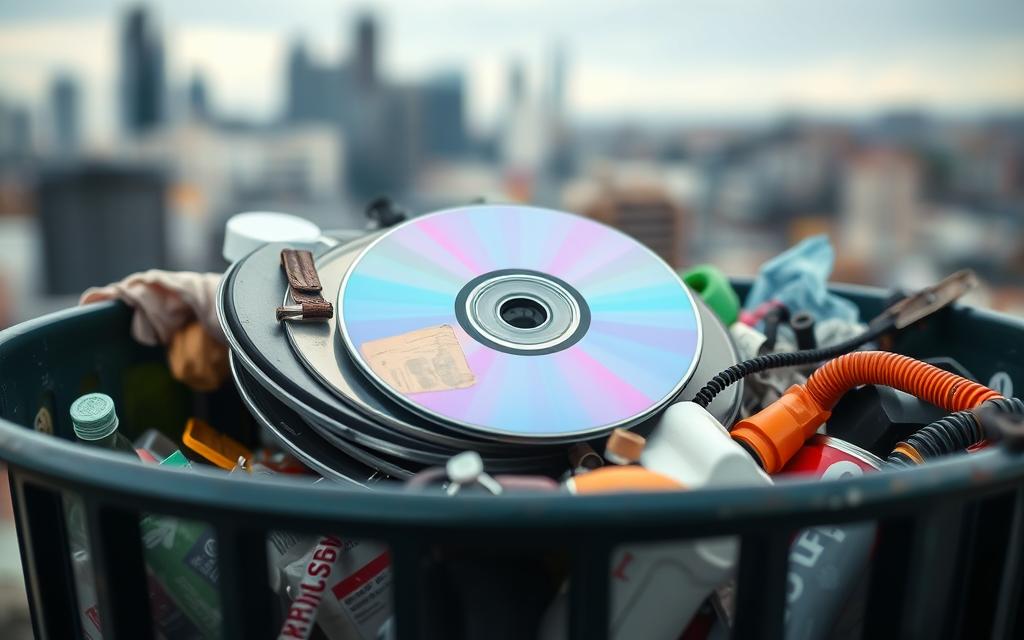
| Disposal Method | Description | Eco-friendly Aspect |
|---|---|---|
| Library Donations | Donate spare cases and DVDs to local libraries. | Supports community resources; promotes reuse. |
| Goodwill Stores | Accepts unwanted packaging for resale or use. | Encourages second-hand use; reduces landfill waste. |
| Creative Upcycling | Transform discs into art projects or functional items. | Promotes creativity; provides a new life to materials. |
| Specialised Recycling Centres | Facilities like CD Recycling Center of America and Best Buy offer recycling options. | Ensures responsible disposal; reduces environmental impact. |
Environmental Risks of Improper Disposal
Throwing away DVDs instead of recycling them causes pollution. This is because they don’t break down naturally in the environment. It’s important to understand how DVD disposal affects us. This knowledge helps in pushing for greener habits.
Toxic Chemicals Released in Landfills
Landfills are harmful places for DVDs. As these discs break down, they release dangerous chemicals. One of these is bisphenol-A (BPA), found in the plastic of DVDs. BPA is harmful to both nature and people’s health. As more DVDs are dumped, the risk of pollution grows.
Health Implications from Incineration
Burning DVDs is harmful to health because of the toxic gases it releases. Hydrochloric acid and dioxins are among the dangerous substances produced. These gases are risky for people living nearby. To keep our health and environment safe, we need to dispose of DVDs properly.
How to Safely Dispose of DVDs
Getting rid of DVDs the right way is important. It keeps the environment safe and protects your data. First, you need to destroy the DVDs properly to keep personal info safe. Then, look into recycling options for the DVDs and their cases. This helps support green practices.
Step-by-Step Process for Destroying DVDs
Here’s how to destroy DVDs:
- Gather materials: You’ll need coarse sandpaper, scissors, or a shredder that can handle plastic.
- Scratch the surface: Scratch the disc deeply so no one can get the data off it.
- Cut into pieces: Cutting the DVDs into small pieces makes it impossible to recover the data.
Recycling Options for DVDs and Cases
After destroying the DVDs, consider these recycling options:
- Community Recycling Initiatives: Look into local recycling programmes. They might take DVDs and cases.
- Specialised Companies: Some places, like CD Recycling Center of America and GreenDisk, recycle old DVDs and cases. They might ask for a small fee but do the job responsibly.
- Remove Paper Components: Take out any paper from DVD cases before recycling. This makes the recycling process smoother.
Creative Repurposing Ideas for Old DVDs
Turning old DVDs into new decor items offers a chance to reduce waste creatively. By crafting household items from these discs, you can save the planet. Plus, it sparks your inventiveness and personal style.
DIY Projects for Household Items
Starting DIY projects for DVDs can give old items you’d toss out a second chance. Look at some fun ideas:
- Making trendy bags from DVD cases for an unusual accessory.
- Building a homemade disco ball to make any room more lively.
- Making candle holders from DVDs to lighten up your nights.
- Creating a photo frame to display your precious memories.
These activities encourage creative recycling and are a fun way to reuse what you have. For more hobbies using CDs, check out these great repurposing ideas.
Artistic Uses of Old DVDs
The shiny surfaces of CDs can make your art projects truly stand out. Check out these artistic DVD crafts:
- Mosaic pieces from DVD fragments that create beautiful wall decor.
- Jewellery from CDs that’s both stylish and green.
- CD snails that add charm to kids’ playtime.
- Educational crafts that make learning fun and creative.
These crafts show the value of repurposing DVDs. They turn old discs into amazing art. This journey also brings people together, celebrating eco-friendly creativity.
Where to Recycle DVDs
Searching for the right places to recycle DVDs helps with eco-friendly disposal. Local community recycling centres have specific rules for these items. It’s key to check local options for effective recycling.
Local Community Recycling Centres
Many places have recycling facilities that take DVDs. Some areas have special programmes for DVD recycling. It helps the environment and gets rid of unwanted discs.
Specialised Recycling Services
If you need more options, there are specialised services. The CD Recycling Center of America takes DVDs and offers mailing options. They make sure DVDs are recycled right and keep data safe. Always check if they protect your information.
Conclusion
Exploring eco-friendly ways to get rid of DVDs helps us all do better for our planet. Every month, people throw away 100,000 pounds of old CDs. Over 5.5 million boxes of software are also dumped, adding to our waste problem. By getting to know what DVDs are made of and how to recycle them, we can turn waste into something useful.
Repurposing DVDs or giving them away reduces what we toss out. It also helps us become more thoughtful buyers. Using expert recycling services means DVDs are disposed of the right way. This cuts down on our environmental impact. When we all do our part, we build a strong method for recycling, helping both people and businesses.
Dealing with e-waste is something we all must do. Choosing responsible ways to dispose of DVDs changes how we see them. They go from being just trash to valuable resources. Let’s all work together for a future that’s eco-friendly. By picking the right disposal methods, we make our world a cleaner and more sustainable place.
FAQ
Can DVDs be recycled through curbside recycling programmes?
No, DVDs usually can’t go in curbside bins. Their mixed plastic make-up gives recyclers a hard time.
What materials are DVDs made from?
The main part of DVDs is polycarbonate plastic, or #7 plastic. They also have bits of metals like aluminium and gold. Their cases are often #6 plastic, known as polystyrene.
What are the environmental risks of improper DVD disposal?
Throwing out DVDs the wrong way can hurt the environment. They won’t break down over time. Burning them can release dangerous chemicals. These chemicals are bad for people’s health and the environment.
How can I safely dispose of my DVDs?
You can make DVDs unreadable with coarse sandpaper or scissors. This protects your data. Then, take them to a place that recycles them properly.
What are some creative ways to repurpose old DVDs?
You can turn old DVDs into cool things for your home. Think about making a stylish bag or art for your walls. You can create mosaic pieces, disco balls, or use them in candle holders.
Where can I recycle my DVDs locally?
Look up your nearest community recycling spot. Some places have special DVD recycling programs. Or, you could send them to the CD Recycling Center of America. They recycle DVDs the right way.

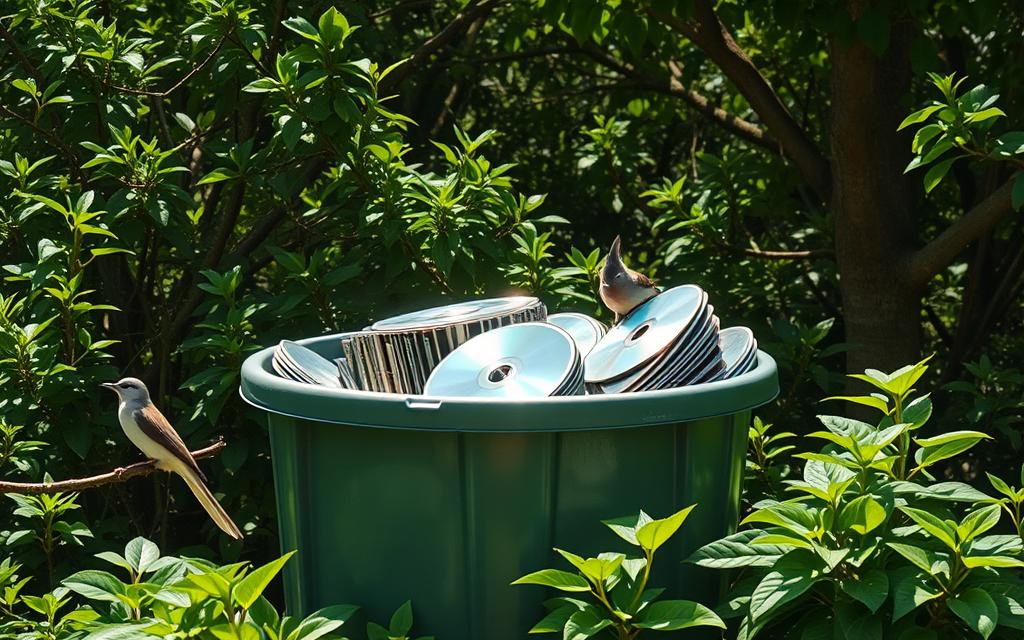






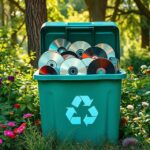
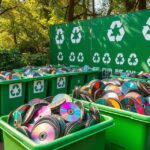
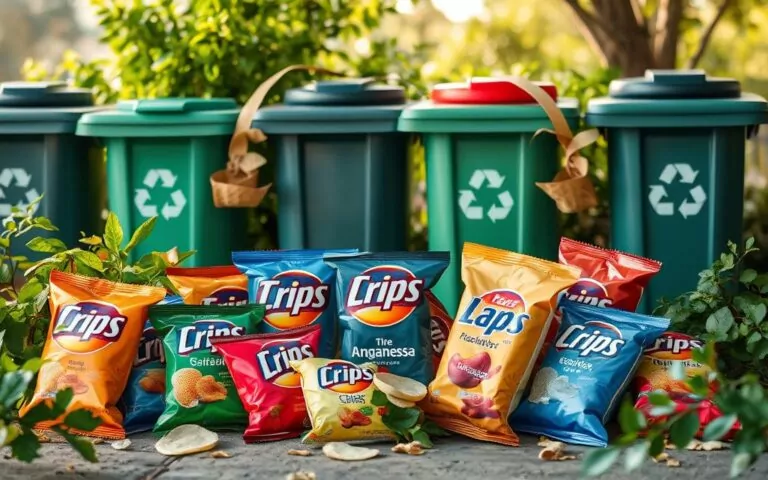
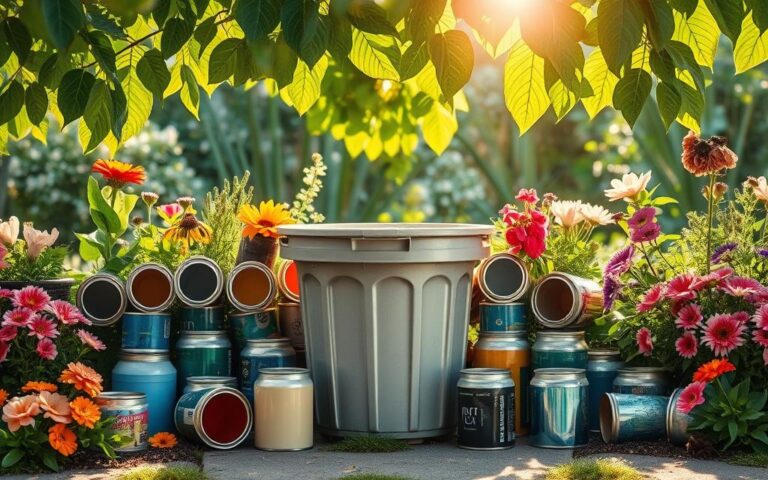
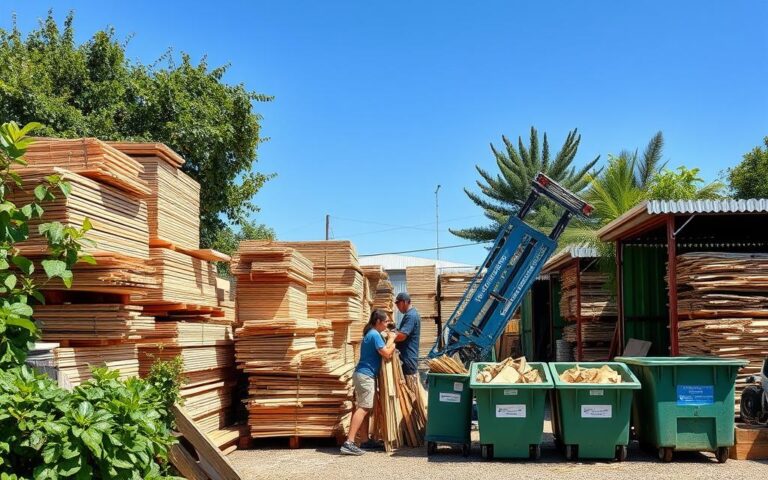

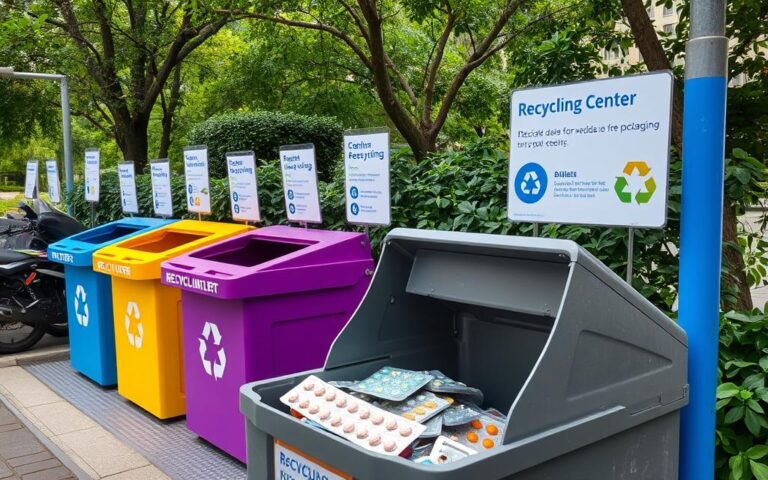
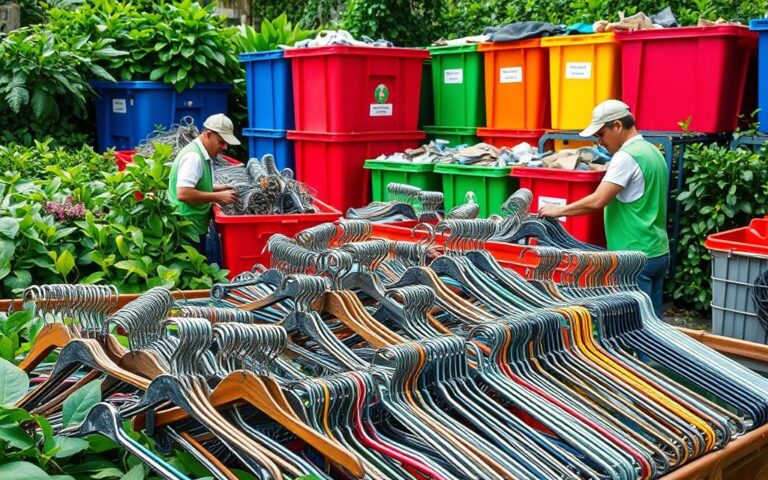
You have observed very interesting points! ps decent site.